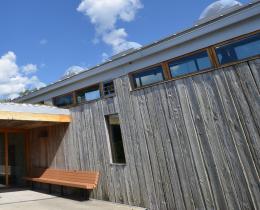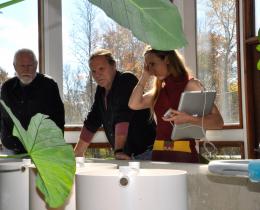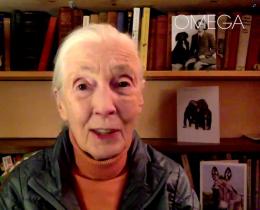Have you ever considered how well your school educates for a sustainable future? Ever wondered where the gaps are, either in curriculum, community engagement, or the built environment?
Now, a new survey is offering school administrators, teachers, operational staff, community members, students, and others a way to answer those questions and more.
The Sustainability Education Strengths Assessment Tool has been developed by the Center for Sustainability and Climate Education at the Dutchess County (N.Y.) Board of Cooperative Educational Services (BOCES). The center was established in 2020 in partnership with the Omega Institute and other nonprofit organizations. The survey was authored by Omega Center for Sustainable Living (OCSL) assistant director Lauren Mathis, Jaimie Cloud of the Cloud Institute for Sustainability Education, and Terrence McKiernan, a staff specialist at Dutchess BOCES.
The tool provides a baseline assessment of a school or district's "state of change" in its journey to educate for sustainability through curriculum design, organizational policy, and the built environment. Its results can be used to inspire ideas for short and long-term planning as well as a frame of reference for measuring progress. Bringing in all school constituencies, the authors say, is essential.
"The capacity of the work to be transformative," McKiernan said, "skyrockets when the work is not limited to curriculum, policy, or buildings and grounds."
"If we really want education to contribute to sustaining human and other life on the planet," Cloud said, "it is going to be a holistic endeavor."
Among the topics covered are:
- Whether a school or district has formally adopted certain sustainability education or environmental literacy guidelines.
- Whether instructional practices include learner-centered activities, inquiry-based approaches, applied learning methods, or collaborative learning, among others.
- Whether there are strategic plans, policies, and practices in place to drive, monitor, and evaluate sustainability education efforts.
- How well a school or district supports student leadership through peer-to-peer coaching, mentorships, or student feedback.
- To what extent community partnerships are leveraged.
- How energy efficient and otherwise "green" school facilities are.
Assessment Tool is a First Step
The tool is meant to serve as an initial level of engagement between the BOCES center and a school district. Once completed, schools can take advantage of services offered by BOCES and the center's partners, which include Omega, the Cloud Institute, the Ashokan Center, and the New York State Teachers Center. And although BOCES serves 13 public school districts in Dutchess County representing nearly 39,000 students, the tool is available to any school or district.
McKiernan said Dutchess BOCES is part of several curriculum and professional development networks across the state. "So while we are focused on serving our component districts, we have our eyes on having a reach quite a bit larger than that," he said.
And while the tool is comprehensive in its scope, it can break down next steps into actionable items that a principal, a teacher, a student, or a school board can digest.
"Because it is so digestible, because it is so attainable, people are going to want to do it at a level that maybe they haven’t before," McKiernan said. "That’s the part that is exciting to me."
Rhinebeck School District Looks Ahead
The Rhinebeck (N.Y.) Central School District is among the first that will be using the tool to chart a path forward. School Superintendent Dr. Albert Cousins said he expects the tool to initiate a dialogue among students, teachers, administrators, and operational staff.
"The strengths assessment tool is important because it gives you your baseline of where you are starting," Cousins said. "I do expect there are going to be a lot of concepts where we realize we are not there yet or haven’t even thought about. I think there is going to be a lot of that, which is good. It’s about priority setting."
Cloud has developed similar albeit less comprehensive assessment tools for schools as part of the Cloud Institute's consultancy business. She said that having the BOCES imprimatur on the sustainability center and the assessment tool underscores in a powerful way the critical role schools must play in moving toward a sustainable future.
"To have an official school services board take that leadership role and say all that out loud is literally unheard of," Cloud said.
Mathis, the OCSL's assistant director, notes that the center and the strengths assessment tool were launched even as schools were dealing with the challenges posed by the coronavirus pandemic. "The pandemic has shown us that we need to be able to quickly respond and adapt to challenges," Mathis said. "And that is part of educating for sustainability."
Schools or districts wishing to use the survey can do so by contacting Jenny Schinella, director of educational resources at Duchess BOCES, at jenny.schinella@dcboces.org.
"The kids are counting on us," Cloud said. "It’s not just their future. It’s their present."
© 2021 Omega Institute for Holistic Studies



